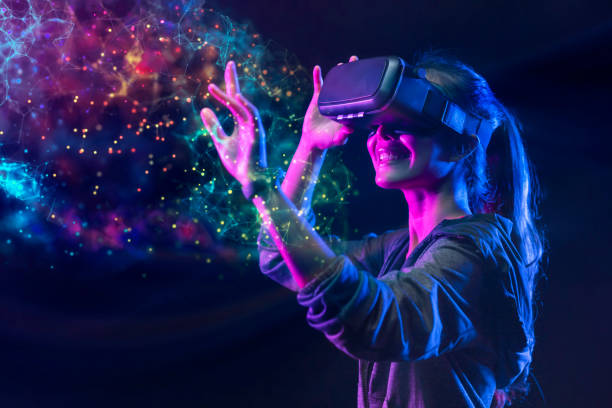Introduction:
Virtual reality (VR) technology has come a long way in recent years, and it’s now being used in a variety of industries, including gaming and entertainment. With the advancements in VR technology, the future of gaming and entertainment looks very exciting. In this article, we’ll explore the current state of VR in gaming and entertainment, and what the future holds for this technology.
Current State of VR in Gaming and Entertainment
Virtual reality technology has been around for decades, but it’s only recently that it’s become more mainstream. Many companies have been working on VR technology and have released VR headsets that are more affordable and accessible to the average consumer. Some of the most popular VR headsets on the market today include the Oculus Rift, HTC Vive, and PlayStation VR.
In the gaming industry, VR technology has been used to create immersive and interactive experiences. Players can feel like they are inside the game, and the use of VR controllers allows for more realistic interactions with the game world. Some popular VR games include Beat Saber, Superhot VR, and Moss.
In the entertainment industry, VR technology has been used to create virtual concert experiences and movies that allow viewers to feel like they are part of the action. VR experiences like “TheBlu” allow users to explore the ocean and interact with marine life and “Jaunt” allows exploring different places and cultures.
Advancements in VR Technology
Recent advancements in VR technology have made the VR experience even more realistic and immersive. One of the most notable advancements is the use of haptic feedback. Haptic feedback technology allows VR controllers to simulate the sensation of touch, making the experience more realistic.
Another advancement in VR technology is the use of inside-out tracking. Inside-out tracking eliminates the need for external cameras or sensors to track the player’s movements. This makes it easier to set up and use VR technology in a variety of settings.
VR in Gaming Industry
The gaming industry has been one of the biggest adopters of VR technology. With the use of VR, players can feel like they are inside the game, and the use of VR controllers allows for more realistic interactions with the game world. VR technology has also been used to create multiplayer games that allow players to interact with each other in a virtual world.

One of the biggest advantages of VR in gaming is the ability to create more immersive and interactive experiences. Players can feel like they are part of the game and have a greater sense of presence in the virtual world. This has led to the creation of new genres of games, such as VR escape rooms and VR horror games, that wouldn’t be possible without VR technology.
VR in Entertainment Industry
Virtual reality technology has also been used in the entertainment industry to create immersive experiences for viewers. Virtual concert experiences allow fans to feel like they are part of the concert, and VR movies allow viewers to feel like they are part of the action.
VR technology has also been used to create theme park experiences that allow visitors to feel like they are part of the ride. This has led to the creation of new types of attractions, such as VR roller coasters, that wouldn’t be possible without VR technology.
The Future of VR in Gaming and Entertainment
As VR technology continues to advance, the future of gaming and entertainment looks very exciting. In the future, we can expect to see even more realistic and immersive VR experiences.
One of the biggest advancements in VR technology that we can expect to see in the future is the use of 5G technology. 5G technology will allow for faster and more stable connections, which will improve the VR experience. This will lead to even more realistic and responsive virtual worlds, making the experience even more immersive.
Conclusion
Virtual reality technology has come a long way in recent years, and it’s now being used in a variety of industries, including gaming and entertainment. With the advancements in VR technology, the future of gaming and entertainment looks very exciting. As VR technology continues to advance, we can expect to see even more realistic and immersive VR experiences, and the technology being used in more industries. The possibilities for VR are endless and we can expect to see many more exciting developments in the future.

